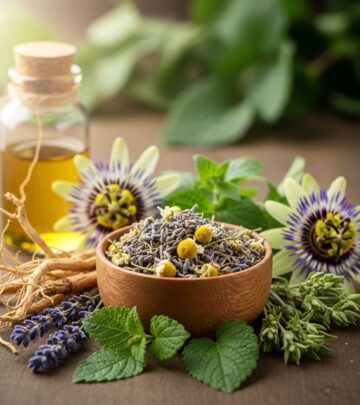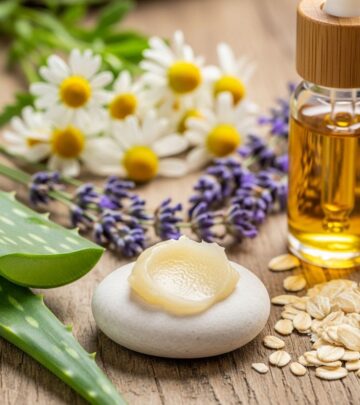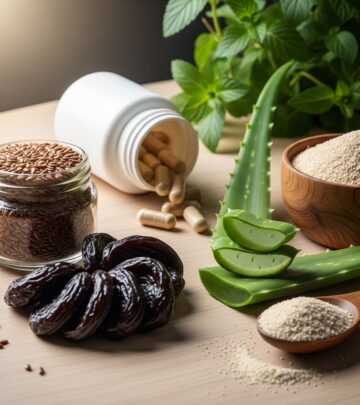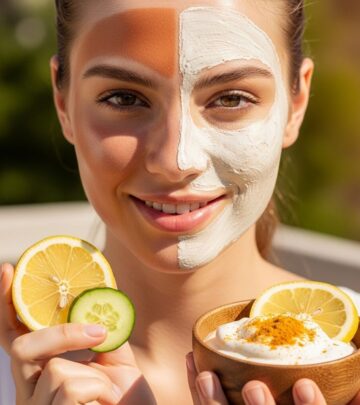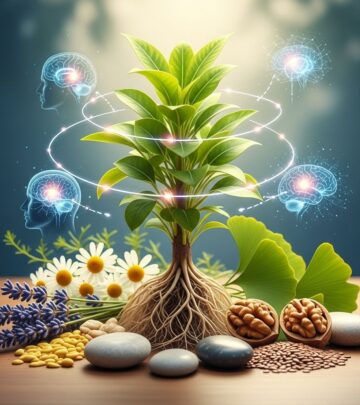11 Effective Natural Remedies to Help You Get Rid of Dandruff
Discover natural methods to eliminate dandruff and maintain a healthy, itch-free scalp using accessible remedies.
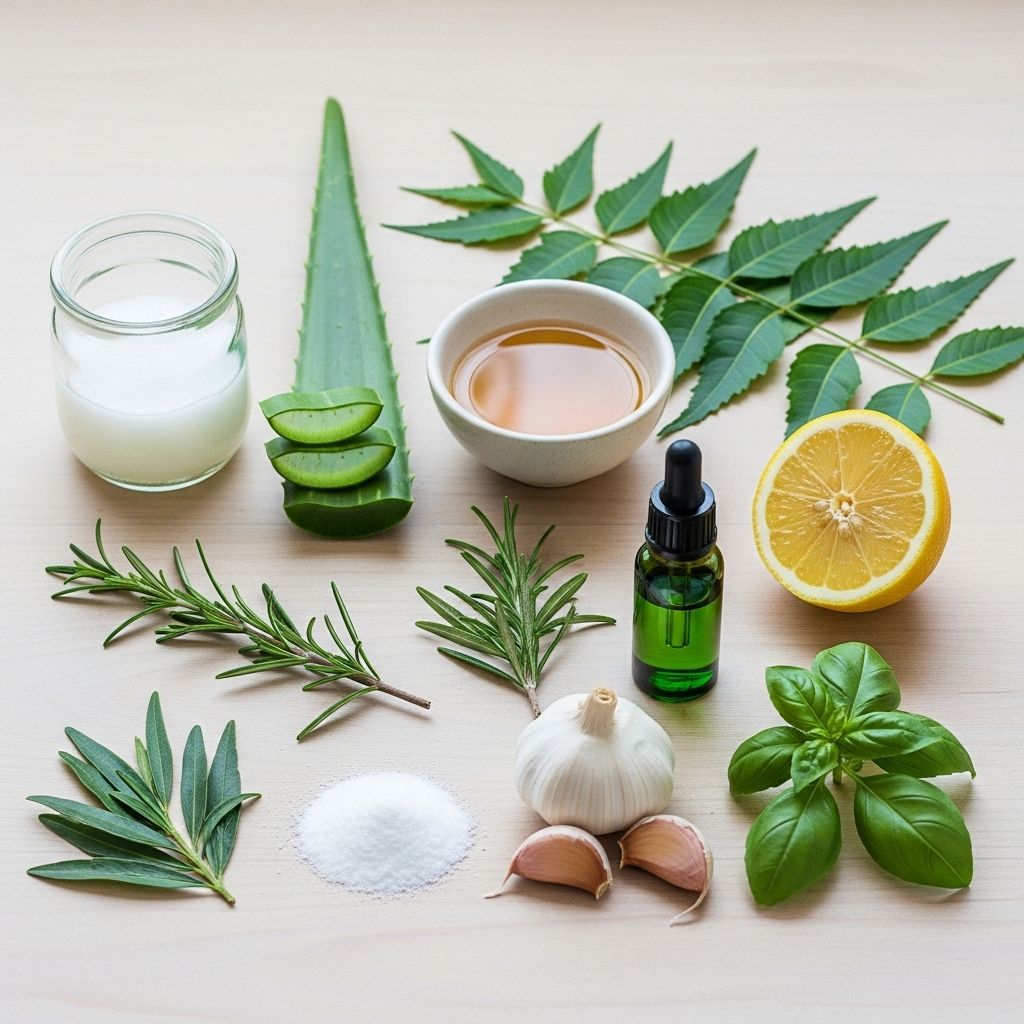
Dandruff, the persistent scalp condition marked by itching and flaking, affects nearly half of the world’s population at least once in their lifetime. While pharmacy shelves are packed with anti-dandruff shampoos, many individuals prefer natural remedies that are gentle, chemical-free, and easily accessible. This comprehensive guide explores 11 proven natural approaches to manage dandruff and restore scalp health.
Understanding Dandruff: Causes and Symptoms
- Dry skin is a common trigger, especially in winter months or dry climates.
- Seborrheic dermatitis leads to oily, irritated skin and persistent flakes.
- Reaction to hair products can irritate the scalp.
- Malassezia yeast overgrowth may disrupt the natural scalp microbiome.
Typical symptoms include itchiness, visible white or yellow flakes, redness, and sometimes an oily scalp. Addressing dandruff at its roots helps prevent recurrence and improve overall hair health.
1. Tea Tree Oil
Tea tree oil (Melaleuca alternifolia) is well-regarded for its potent antimicrobial and anti-inflammatory effects, making it an effective natural remedy against dandruff and scalp irritation.
- Fights dandruff-causing fungus and bacteria.
- Reduces scalp itchiness and sensitivity.
How to use: Always dilute tea tree oil before applying. Mix a few drops with coconut or jojoba oil and massage gently onto the scalp. Alternatively, add a few drops to your regular shampoo. Use 2–3 times weekly for best results.
2. Coconut Oil
Coconut oil is a favorite in natural hair care for its deep hydration, ability to restore the skin barrier, and possible antifungal properties.
- Moisturizes dry, flaky scalp.
- Reduces inflammation and strengthens scalp health.
How to use: Warm 1–2 tablespoons and massage into the scalp. Leave for 20–30 minutes, then rinse with a mild shampoo. Repeat twice a week.
3. Aloe Vera
Aloe vera (Aloe barbadensis) is a trusted remedy for soothing skin irritation, reducing inflammation, and promoting healing.
- Contains antioxidants and antifungal agents.
- Calms redness and itching.
How to use: Apply fresh aloe vera gel directly onto the scalp, leave for 30 minutes, and wash off. For enhanced results, mix aloe with honey or yogurt as a nourishing hair mask.
4. Apple Cider Vinegar
Apple cider vinegar (ACV) is widely used as an accessible, natural dandruff treatment thanks to its cleansing and pH-balancing abilities.
- Reduces scalp build-up and flakes.
- Restores the scalp’s ideal pH, curbing fungal growth.
How to use: Mix equal parts ACV and water, pour over the scalp after shampooing, and leave for 10–15 minutes before rinsing thoroughly. Repeat once weekly.
5. Baking Soda
Baking soda acts as a mild exfoliant to remove dead skin cells and reduce flakiness.
- Scrubs away excess flakes.
- May curb fungal activity.
How to use: Dampen your hair, gently rub a small handful of baking soda into your scalp, then rinse thoroughly after 1–2 minutes. Avoid frequent use to prevent dryness.
6. Neem
Neem, an Ayurvedic herb, is valued for its powerful anti-bacterial and antifungal properties.
- Fights dandruff-causing fungus.
- Strengthens hair follicles and soothes scalp irritation.
How to use: Boil neem leaves in water, cool, and rinse your hair with the infusion. Alternatively, make a paste from the leaves and apply as a mask, leaving for 30 minutes before washing off.
7. Fenugreek Seeds
Fenugreek seeds (Methi) are rich in vitamins, minerals, and proteins that nourish the scalp and decrease dandruff.
- Has anti-inflammatory effects.
- Reduces flakiness and itching.
How to use: Soak 2–3 tablespoons of fenugreek seeds overnight, grind into a paste, and apply to the scalp. Leave for 30 minutes, then rinse with a gentle shampoo. Adding lemon or curd can enhance effectiveness.
8. Omega-3 Fatty Acids
Omega-3s, essential fats found in foods like salmon, walnuts, and pumpkin seeds, help keep the scalp hydrated and support skin barrier integrity.
- Reduces scalp dryness and inflammation.
- Supports a healthy scalp microbiome.
How to use: Incorporate omega-3-rich foods such as fatty fish, flaxseeds, chia seeds, and walnuts into your diet. Supplements can be considered, but consult a healthcare professional first.
9. Aspirin
Aspirin contains salicylic acid, a common ingredient in many medicated shampoos for exfoliating scalp scales.
- Helps shed dead skin and reduces flaking.
How to use: Crush two aspirins into a fine powder, add to your regular shampoo, massage into hair, leave for a few minutes, then rinse thoroughly.
10. Probiotics
Probiotics (beneficial bacteria) may contribute to a balanced scalp environment and reduce the risk of yeast overgrowth that triggers dandruff.
- Boosts immune function and skin health.
How to use: Consume probiotic-rich foods such as yogurt, kefir, kimchi, or sauerkraut, or consider a daily probiotic supplement.
11. Stress Management
Chronic stress can exacerbate dandruff and related skin conditions by disrupting immune and hormonal balance.
- Helps control flare-ups and itching.
How to use: Incorporate stress reduction strategies like regular exercise, mindfulness meditation, quality sleep, or yoga into your routine to manage symptoms and support overall scalp health.
Comparison Table: Key Natural Remedies for Dandruff
| Remedy | Main Benefit | How to Use | Caution |
|---|---|---|---|
| Tea Tree Oil | Antimicrobial, anti-inflammatory | Dilute and massage into scalp | May irritate sensitive skin |
| Coconut Oil | Moisturizing, anti-inflammatory | Apply, leave 30 min, rinse | Rinse thoroughly to avoid residue |
| Aloe Vera | Soothing, antifungal | Apply gel, leave, rinse | Use natural gel for best effect |
| Apple Cider Vinegar | pH balance, cleansing | Mix with water, apply, rinse | Do not apply on broken skin |
| Baking Soda | Exfoliating, antifungal | Gently rub, rinse immediately | Can dry scalp if overused |
| Neem | Antibacterial, antifungal | Boil leaves, rinse, or mask | May stain fabric and skin |
| Fenugreek | Nourishing, anti-inflammatory | Soak, paste, apply, rinse | Strong smell, wash thoroughly |
| Omega-3 Fatty Acids | Hydration, anti-inflammatory | Dietary sources/supplement | Consult before supplementing |
| Aspirin | Exfoliating (salicylic acid) | Crush, add to shampoo | Allergy risk |
| Probiotics | Balances skin microbiome | Dietary/ supplement | Choose reputable products |
| Stress Management | Reduces flare-ups | Exercise, meditate, rest | No direct cautions |
Frequently Asked Questions (FAQs)
Q: Is dandruff contagious?
A: No, dandruff is not contagious. It is a result of scalp conditions or sensitivities, not an infection that spreads from person to person.
Q: How soon should I expect results with natural treatments?
A: Most remedies require 2–3 weeks of consistent use before visible improvement. If symptoms worsen or persist, consult a healthcare professional.
Q: Can these remedies completely replace medicated shampoos?
A: Some individuals experience significant relief with natural methods, but severe or persistent dandruff may benefit from combined or prescription treatments. Always monitor results and adapt your approach.
Q: Are home remedies safe for color-treated hair?
A: Most remedies, like coconut oil and aloe vera, are gentle on color-treated hair. However, acidic treatments (like ACV) should be used cautiously to avoid stripping hair color.
Q: Which dietary changes help fight dandruff?
A: Eating foods rich in omega-3 fatty acids, maintaining hydration, and including probiotics can support scalp health and decrease inflammation-related dandruff.
Expert Tips for Maximum Effect
- Always perform a patch test before applying any new substance to your scalp.
- Use remedies consistently but avoid overuse, which can irritate or dry out the scalp.
- Maintain regular hair washing to keep your scalp free from buildup, but avoid harsh chemicals and excessive heat styling.
- If you experience redness, swelling, or persistent discomfort, discontinue use and seek professional advice.
When to Seek Medical Advice?
If you have tried several remedies for 3 weeks without improvement or notice severe irritation, excessive hair loss, or swelling, it’s best to consult a dermatologist for personalized treatment. Persistent dandruff can sometimes signal underlying skin conditions that need medical attention.
Conclusion
Natural remedies offer a safe and effective way for many people to manage dandruff, reduce scalp irritation, and improve overall hair health. Choose those most suitable for your scalp type, combine dietary improvements, and maintain a consistent routine for best results. With diligence and patience, you can achieve a flake-free, itch-free scalp—naturally.
References
- https://www.healthline.com/nutrition/ways-to-treat-dandruff
- https://www.headandshoulders.co.in/en-in/healthy-hair-and-scalp/dandruff/dandruff-home-remedies
- https://aanmc.org/naturopathic-medicine/dandruff-treatments/
- https://www.medicalnewstoday.com/articles/324756
- http://www.webmd.com/skin-problems-and-treatments/understanding-dandruff-treatment
- https://www.cocoandeve.com/blogs/news/winter-dandruff-remedies
- https://www.youtube.com/watch?v=B2Clk5bD3Ck
Read full bio of Sneha Tete


